|
Should we move to a post-Section 230 internet? Is liability-free content hosting coming to an end?
In Wired, Jaron Lanier and Allison Stanger argue for ending that provision of the Communications Decency Act that protects social media platforms from liability over the content of third-party posts. The two have penned a thoughtful and entertaining analysis about the problems and trajectory of a Section 230-based internet. It’s worth reading but takes its conclusions to an unjustifiable extreme – with unexamined consequences. The authors assert that while Section 230 may have served us well for a time, they argue that long-running negative trends have outpaced the benefits that Section 230 provided. The authors write that modern, 230-protected algorithms heavily influence the promotion of lies and inflammatory speech online, which it obviously does. “People cannot simply speak for themselves, for there is always a mysterious algorithm in the room that has independently set the volume of the speaker’s voice,” Lanier and Stanger write. “If one is to be heard, one must speak in part to one’s human audience, in part to the algorithm.” They argue algorithms and the “advertising” business model appeal to the most primal elements of the human brain, effectively capturing engagement by promoting the most tantalizing content. “We have learned that humans are most engaged, at least from an algorithm’s point of view, by rapid-fire emotions related to fight-or-flight responses and other high-stakes interactions.” This dynamic has had enormous downstream consequences for politics and society; Section 230 “has inadvertently rendered impossible deliberation between citizens who are supposed to be equal before the law. Perverse incentives promote cranky speech, which effectively suppresses thoughtful speech.” All this has led to a roundabout form of censorship, where arbitrary rules, doxing, and cancel culture stifle speech. Lanier and Stanger call this iteration of the internet the “sewer of least-common-denominator content that holds human attention but does not bring out the best in us.” Lanier and Stanger offer valid criticisms of the current state of the net. It is undeniable that discourse has coarsened in connection with the rise of social media platforms and toxic algorithms. Worse, the authors are correct that algorithms provide an incentive for the spreading of lies about people and institutions. Writing that John Smith is a lying SOB who takes bribes will, to paraphrase Twain, pull in a million “likes” around the world before John Smith can tie his shoes. So what is to be done? First, do not throw out Section 230 in toto. As we previously said in our brief before the U.S. Supreme Court with former Senator Rick Santorum, gutting Section 230 “would cripple the free speech and association that the internet currently fosters.” Without immunity, internet platforms could not organize content in a way that would be relevant and interesting to users. Without Section 230 protections, media platforms would avoid nearly any controversial content if they could be frivolously sued anytime someone got offended. Second, do consider modifications of Section 230 to reduce the algorithmic incentives that fling and spread libels and proven falsehoods. Lanier and Stanger make the point that the current online incentives are so abusive that the unhinged curtail the free speech of the hinged. We should explore ways to reduce the gasoline-pouring tendency of social media algorithms without impinging on speech. Further reform might be along the lines of the bipartisan Internet PACT Act, which requires platforms to have clear and transparent standards in content moderation, and redress for people and organizations who have been unfairly deposted, deplatformed, and demonetized. Lanier and Stanger are thinking hard and honestly about real problems, but the problems they would create would be much worse. A post-230 social media platform would be either be curated to the point of being inane, or not curated at all. Now that would be a sewer. Still, we give Lanier and Stanger credit for stimulating thought. Everyone agrees something needs to change online to promote more constructive dialogue. Perhaps we are getting closer to realizing what that change should be. “Once again, the House has passed the Protect Reporters from Exploitive State Spying (PRESS) Act with unanimous, bipartisan support. Forty-nine states have press shield laws protecting journalists and their sources from the prying eyes of prosecutors. The federal government does not. From Fox News to The New York Times, government has surveilled journalists in order to catch their sources. Journalists have been held in contempt and even jailed for bravely safeguarding the trust of their sources.
“The PRESS Act corrects this by granting a privilege to protect confidential news sources in federal legal proceedings, while offering reasonable exceptions for extreme situations. Such laws work well for the states and would safeguard Americans’ right to evaluate claims of secret wrongdoing for themselves. “Great credit goes to Rep. Kevin Kiley and Rep. Jamie Raskin for lining up bipartisan support for this reaffirmation of the First Amendment. As in 2022, the last time the House passed this act, the duty now shifts to the U.S. Senate to respond to this display of unanimous, bipartisan support. I am optimistic. At a time of gridlock, enacting this bill into law would be a positive message that would reflect well on every Senator.” That a free press is integral to free speech was obvious to the founders, who guaranteed both in the First Amendment. But is it so obvious today? Under both Democratic and Republican presidents, federal investigators have helped themselves to the private records of the AP, CNN, The Washington Post, and The New York Times, as well as those of activist journalists on both the left and right.
In Kansas, police raided a small-town newspaper over a minor story involving public records and a DUI. The police confiscated newsroom computers containing reporters’ notes and source materials and putting the very existence of the paper at risk. Fortunately, Kansas has a state press shield law that grants media the right to keep source identities confidential. Journalists enjoy no such protections at the federal level. It is not clear what recourse, for example, Tampa-based journalist Tim Burke has after the FBI stormed his home in May, confiscating his computer, cellphone, and information on multiple stories and their sources. If trust is the coin of the realm, then the federal government’s coinage is debased. The Pew Research Center reports that only 2 percent of Americans trust the government in Washington to do what is right “just about always.” Only 19 percent believe the government acts correctly “most of the time.” To be sure, cynicism about government results from spectacular failures of competent governance. The cynicism also reflects the loudly proclaimed belief by political leaders that the other party, once in control, will weaponize investigations and prosecutions, while thumbing the scale for its friends and allies. While these fears are sometimes overstated, the solution is not to weaponize government for one side against the other, but to hold government accountable to everyone. One of the best ways to restore trust is to protect the freedom of journalists to do their jobs. From Watergate to the Pentagon papers, to the depredations of Harvey Weinstein, to the roiling controversies of our day, journalists’ revelations have been enabled by whistleblowers, brave men and women willing to risk it all to reveal wrongdoing. All states save Wyoming offer greater journalist protections than the federal government. South Carolina, to cite just one of 49 examples, enacted a press shield law in 1993 to protect journalists from being compelled to divulge their sources. The preface to the law boldly states: “The General Assembly finds that it is vital in a democratic society that the public have an unrestricted flow of information on matters of concern to the public and that the threat of compelled testimony … interferes with the free flow of information to the public.” The good news is that as events spin into overdrive in the nation’s capitol, congressional leaders in both parties are coming to see the wisdom of following South Carolina’s example. They are ready to temper government actions to protect journalists and press freedom from overweening federal prosecutors by passing a federal press shield law, the Protect Reporters from Exploitive State Spying (PRESS) Act. The PRESS Act protects both journalists and their sources. The latter is important, because whistleblowers need the assurance that the reporter with whom they speak in confidence cannot be compelled to betray their trust. The PRESS Act offers that promise by establishing a federal statutory privilege shielding journalists from being compelled to reveal confidential sources. It would also block attempts to compel disclosure of account information from communications services used by reporters. In 2007 and again in 2009 as a member of the House, Protect The 1st Senior Policy Advisor Rick Boucher was the primary author of the forerunner to the PRESS Act. He saw it pass the House twice with large bipartisan majorities, and then die – as so many good bills do – in the Senate. This time, the stars seem to be aligning in the Senate for passage of the PRESS Act. Lindsay Graham, South Carolina’s senior senator and the Ranking Member of the Judiciary Committee, is cosponsoring the measure. Sen. Graham joins a strong bipartisan team that includes Senate Judiciary Chairman Dick Durbin (D-IL), Sens. Ron Wyden (R-OR) and Mike Lee (R-UT). The PRESS Act also enjoys strong bipartisan leadership in the House from Rep. Kevin Kiley (R-CA) and Rep. Jamie Raskin (D-MD). House support ranges from conservative Rep. Jim Jordan (R-OH), Chairman of the House Judiciary Committee, to liberals like former committee Chairman Jerry Nadler (D-NY). During the last Congress, the House approved the PRESS Act by a bipartisan, unanimous voice vote. The acceptance of press shield laws by 49 states demonstrates sweeping public support for freedom of the press. At a time when trust is scarce, wouldn’t it be refreshing to see national leaders in both parties pass a popular measure that enhances a fundamental freedom and holds government accountable? House Judiciary Committee Passes Protect Reporters from Exploitative State Spying (PRESS) Act7/19/2023
PT1 is pleased that the House Judiciary Committee reported H.R. 4250, the Protect Reporters from Exploitative State Spying (PRESS) Act, to the full House by a unanimous 23-0 vote.
This bill, long supported by Protect The 1st and civil liberties sister organizations, would protect journalists and their sources by granting a privilege to shield confidential news sources in federal legal proceedings. It contains reasonable exceptions in cases where application of the privilege could result in serious harm. Former Rep. Rick Boucher (D-VA), PT1 Senior Policy Advisor, said: “The PRESS Act was approved today because courts continue to hold journalists in contempt and even jail them for refusing to reveal their confidential sources. The Committee today made a bold statement that this is not acceptable. I am heartened to see such a strong, bipartisan stand for a free and unintimidated press.” Former Rep. Bob Goodlatte who served as Chairman of the House Judiciary Committee, and now as PT1 Senior Policy Advisor, said: “Journalism and the right to report on government actions must be better protected. We’ve all seen law enforcement officials under multiple recent administrations issue secret orders to surveil the private communications of journalists. Their freedom to report on government misdeeds is critical to maintaining a free society, and I encourage the broader House of Representatives to swiftly approve this legislation, as they have in the past.” We would like to extend our gratitude to Reps. Kiley and Raskin for their leadership in introducing the bill, as well as to Chairman Jordan and Ranking Member Nadler for their support in moving it through committee. The PRESS Act’s passage is the result of overwhelming bipartisan support for freedom of the press guaranteed by the First Amendment of the Constitution. Protect the 1st hopes the full House will take up and pass this important legislation soon. Applauds Reps. Kiley and Raskin, and Sens. Wyden and Lee, for Leadership in Introducing Important Bill The PRESS Act – Protect Reporters from Exploitive State Spying Act – was introduced in the U.S. House and Senate this morning.
This legislation would limit the ability of prosecutors to expose the sources and notes of journalists in federal court. While 49 U.S. states have such press “shield laws,” the federal government has no such protections. This has led to federal intrusions into the records of the Associated Press, The Washington Post, and The New York Times, as well as advocacy journalists on the left and right. The PRESS Act had previously passed the House with unanimous, bipartisan support in September 2022. Today, it was introduced by Rep. Kevin Kiley (R-CA) and Rep. Jamie Raskin (D-MD), and in the Senate by Sen. Ron Wyden (D-OR), and Sen. Mike Lee (R-UT). “Support for the PRESS Act sweeps across ideological divisions in both houses of Congress because it is widely recognized that the basic liberties of all are at stake,” said Bob Goodlatte of Virginia, former Chairman of the House Judiciary Committee and Senior Policy Advisor of Protect The 1st. “At a time when voters and constituents in both parties are concerned about the potential for federal power to be abused and misused, passing the PRESS Act into law this year should be a point of pride for any incumbent.” Rick Boucher, former Virginia congressman, member of the House Judiciary Committee, and now Senior Policy Advisor of Protect The 1st, also stressed the need to pass this legislation in 2023. He was also the lead sponsor of a forerunner bill, the federal press shield legislation that passed the House in 2007 and 2009. “Journalists have been held in contempt and jailed for refusing to reveal their confidential news sources,” Boucher said. “When big scandals, corruptions, and misdeeds that harm the public interest come to light, it is usually because some brave soul on the inside was willing to speak to a reporter. “Let’s protect that whistleblower,” Boucher said. “And let’s protect that journalist as well. By doing so, we protect all our rights.” The Educational Choice for Children Act is a House-Senate bill that aims to provide tax credits for charitable donations to expand choices in quality education. The legislation, introduced by Sens. Cassidy, Scott, Daines, and Young, and Reps. Owens and Smith, would allow individuals and businesses to receive tax credits for donations to Scholarship Granting Organizations (SGOs) that provide scholarships to eligible students for attending private or religious schools, homeschooling, or other non-public educational options.
The bill’s supporters make the point that private options are often superior choices over available public schools. “I’ve always said that when you give parents a choice, you give kids a better chance at achieving their dreams,” said Senator Scott. “By empowering families with more education resources, this bill could change the lives of millions of high-potential students who deserve every opportunity to succeed.” The bill includes provisions that would allow SGOs to determine the amount of scholarship awards given to individual students. An estimated two million students in any elementary or secondary education setting, including homeschooling, would be eligible to receive scholarships that can cover tuition, fees, books, supplies, and equipment necessary for enrollment or attendance in non-public educational options. The bill is supported by religious and educational organizations. Rabbi Abba Cohen of Agudath Israel of America said: “We encourage lawmakers, Republican and Democratic, to put a bipartisan stamp on the common-sense policy that is at the heart of this bill: assisting parents to access the learning environment and the educational benefits that are best suited for their children, and that will enhance educational achievement for all of America’s students. We call for its favorable consideration and passage by both House and Senate.” The bill was also endorsed by the U.S. Conference of Catholic Bishops. “Like other private schools, religious schools fulfill a critical role in the education of our youth,” said Gene Schaerr, Protect the First general counsel. “Religious schools provide state-mandated instructional material while allowing parents to raise their children in accordance with their faith, a vital component of the free exercise of religion protected by the First Amendment. The Educational Choice for Children Act would provide parents with more educational options that are consistent with their religious beliefs.” In just our second year as a civil liberties organization, Protect The 1st enjoyed great success in advancing and protecting the principles and spirit of the First Amendment in Congress, the courts, and the media.
The Press Act In 2022, Protect The 1st supported a bill, introduced by Rep. Jamie Raskin of Maryland, to bring the federal government up to the same standard as 49 states by protecting journalists’ notes and sources in court proceedings. Persistent advocacy of the Press Act by Protect The 1st Senior Policy Advisors Rick Boucher and Bob Goodlatte, both former House Members from Virginia, was instrumental in securing passage of the bill in the House and advancing it with bipartisan support in the Senate. “The PRESS Act passed unanimously because courts continue to hold journalists in contempt and even jail them for refusing to reveal their confidential sources,” said Rick Boucher. “The House made a strong statement today that this is not acceptable.”
Religious Liberty The free exercise of religion is one of the principal guarantees of the First Amendment. Thus, every religious group has a stake in the ability of the people of the Apache Stronghold to continue observing their ancestral religion at their sacred site in Oak Flat, a large parcel of land in the Tonto National Forest in Arizona. As a result of a midnight deal in Congress, that land is slated to be transferred to a foreign mining consortium to mine copper. That operation would transform the Apache’s sacred land into a crater as long as the Washington Mall and as deep as two Washington Monuments. “Imagine doing that to any other community or religious group — to pulverize St. Patrick’s Cathedral in New York City, or the Touro Synagogue in Rhode Island — and not only destroy an irreplaceable site of worship but leave behind an ugly and enormous gash in the earth,” Rick Boucher wrote in an Earth Day op-ed in The Hill. In this and many other ways, Protect The 1st strongly advocated on behalf of the Apache, including advocacy on Capitol Hill and in amicus briefs in the courts. For most of the year, Oak Flat seemed like a lost cause. The Apache lost their case in the Ninth Circuit Court of Appeals, only to have a rare decision by that same court to revisit its ruling later in the year. While the court ponders the religious liberty implications of the destruction of land sacred to these Americans’ religion, Protect The 1st will take the opportunity to press Congress to pass the Save Oak Flat Act. Religious liberty scored a touchdown when the U.S. Supreme Court, in a 6-3 opinion, upheld the rights of a coach to pray after games. In its opinion, the majority adopted a view that is almost a verbatim quote from the amicus brief Protect The 1st filed in the case of the “praying coach.” Protect The 1st in the Courts Protect The 1st filed a brief in FEC v. Cruz, a case asking the U.S. Supreme Court to invalidate limits on the amount candidates for federal office can recover from their personal donation to their campaigns. In the majority opinion, Chief Justice John Roberts cited Protect The 1st’s brief on removing limits on the right of candidates to personally support their campaigns and their political speech. Protect The 1st petitioned the U.S. Supreme Court to determine if local authorities can regulate speech on public sidewalks, testing the scope of the public forum doctrine in Keister v. Bell. This petition was selected as Petition of the Week by the respected SCOTUSBlog. Our petition also drew the support of multiple First Amendment organizations. Protect The 1st filed multiple briefs asking the U.S. Supreme Court to clarify the rights of public-sector employees to opt-out of being forced to pay for political speech through compelled membership in unions. Protect The 1st ended the year with a filing, Kurk v. LRCEA, that challenges such compulsion and violation of workers’ First Amendment rights. In 2022, Empirical SCOTUS ranked Protect The 1st sixth in the nation in filing amicus briefs. Only five organizations, which included the U.S. government and the U.S. Chamber of Commerce, filed more briefs. Much of the logic and actual language offered by Protect The 1st appeared not only in FEC v. Cruz, but in four important religious liberty cases Ramirez v. Collier, Carson v. Makin, Kennedy v. Bremerton School District, and Shurtleff v. Boston. In each case, Protect The 1st anticipated the Supreme Court majority’s reaction against sudden and dramatic curtailments of the freedom of speech and religion. In all these ways – from the court of public opinion, to the U.S. Supreme Court, to Capitol Hill – Protect The 1st is building on our early successes to support the guarantees of free speech, a free press, and the free exercise of religion. Protect The 1st has long supported the people of the Apache Stronghold as they’ve faced the gut-churning prospect that the government will allow a foreign mining consortium to transform their ancient site of worship into a giant crater as long as the Washington Mall and deep as two Washington Monuments.
Over the summer, a three-judge panel of the Ninth Circuit Court of Appeals issued a ruling that refused to protect Oak Flat, a large swath of the Tonto National Forest that the federal government recognized in a 19th century treaty as land held sacred by the Apache. The court ruled that the transfer of this land to a copper mining consortium resulting from a midnight deal in Congress did not substantially burden the First Amendment right to religious exercise of the Apache. Protect The 1st objected that the absolute destruction of a religious minority’s site of worship, the Apache’s equivalent of the Vatican or Temple Mount, was a “substantial burden” of the right of religious freedom guaranteed by the First Amendment and the Religious Freedom Restoration Act (RFRA). In our view, the Ninth’s ruling would not only destroy the centerpiece of one religion, but would erode all religious protections guaranteed by RFRA. We weren’t alone in our thinking: Judge Marsha Berzon of the Ninth Circuit dissented, called her peers’ ruling “absurd,” “illogical,” “disingenuous,” and “incoherent.” In August, the judges of the Ninth Circuit called for a vote to rehear the case en banc, in front of a full court of 11 judges. Such requests for a rehearing are exceedingly rare, limited to about one-half of one percent of cases. Legal observers welcomed the maneuver as a chance for dissenting judges to get their opinions on record as fodder for a bid for certification for oral argument before the U.S. Supreme Court. Few legal observers gave Oak Flat a realistic chance for an actual rehearing. The Apache people, undaunted, responded in a positive and hopeful way by organizing a caravan to San Francisco to urge the court to go ahead and reconsider its ruling. On Thursday, the full court voted to grant Oak Flat a full en banc rehearing. Gene Schaerr, PT1 general counsel, congratulated the Becket law firm for its strong representation of the Apache. “This is a very encouraging day for religious liberty, the Religious Freedom Restoration Act, and the rights of religious minorities in America,” Schaerr said. “It is remarkable that the Ninth Circuit itself sought this review of its decision. “We congratulate the Ninth for this bold decision and look forward with enthusiasm to supporting the Apache’s case.” Attorney General Merrick Garland this week formalized a policy he announced early in his tenure that restricts the use of legal tools by federal prosecutors to force journalists to divulge their notes and sources.
This new rule precludes “the use of compulsory legal process, including subpoenas, search warrants, and certain court orders for the purpose of obtaining information from or records of members of the news media.” Such protections are sorely needed. We’ve seen federal intrusion into the records of the AP, CNN, The Washington Post, The New York Times, and even morning raids to confiscate the phones of activist journalists. Over the years, journalists have been held in contempt and jailed for refusing to reveal their confidential news sources. Most U.S. states have “press shield” laws that protect journalists’ sources and notes, with reasonable exceptions. But the federal government has no such law. It is heartening to see the Attorney General make this directive a formal rule. We should remember, however, that Department of Justice rules can change with the next Attorney General and the next administration — or even if the current Attorney General changes his mind. We value the ability of journalists to shield confidential sources because so many times revelations from whistleblowers have revealed wrongdoing or dysfunction that the American people need to know about. Recognition of a shield law as essential to freedom of the press explains why Reps. Jerry Nadler and Jim Jordan, Chair and Ranking respectively of the House Judiciary Committee, led a bipartisan group to vocally support the Protect Reporters from Exploitive State Spying (PRESS) Act, introduced by Sen. Ron Wyden (D-OR) and Rep. Jamie Raskin (D-MD). The PRESS Act passed the House with unanimous support in September. Attorney General Garland deserves our gratitude for pushing this issue forward and underscoring its importance. All that’s left is for the Senate to seal the deal and join the House in sending the PRESS Act to the president’s desk for signature. The U.S. Senate today rejected the Disclose Act, a bill that would have violated the privacy of donors and exposed them to threats against their livelihoods, businesses, and very lives.
The proponents of the bill did not lack for colorful (or actually, colorless) metaphors. Proponents have succeeded in persuading the media to call private, confidential donations to political causes as “dark money.” Sen. Sheldon Whitehouse (D-R.I.) called these donations “a dark octopus of corruption and deceit.” Such funds, said Majority Leader Chuck Schumer (D-NY) are “drowning out the views of citizens” and “disfiguring our democracy.” This view overlooks the actual threat of disfigurement in this age of cancel culture, doxing, and the normalization of taking protests (and sometimes guns) to the homes of officials, including Supreme Court justices. Consider what happened in 2009 after California donors who had given $100 or more in favor of a statewide amendment on marriage had their identities disclosed. Common web tools revealed their home addresses and other personal information. With their privacy exposed, donors experienced intimidation, hostility at the workplace, vandalism, slurs, and violence. Donors from the Church of Jesus Christ of Latter-Day Saints were systematically targeted by one website. A Lutheran pastor was threatened with gun and firebomb violence. The power of doxing can work against people of all political persuasions. A website called the Nuremberg files identified roughly 200 abortion providers, along with their personal information, home addresses, phone numbers and photographs. Some physicians targeted in this way were forced to resort to wearing disguises and spending thousands of dollars on home security systems. Respect for donor privacy has a venerable history based on necessary concerns. In 1958, the U.S. Supreme Court protected the anonymity of donors to the NAACP from being reviewed by the State of Alabama, no doubt protecting those donors from harassment and worse. Despite the partisan framing and party-line vote on this bill in this election season, people of all ideologies and both parties continue to have a stake in donor privacy. ACLU, hardly a bastion of corporate apologists, has opposed past versions of the Disclose Act. The donors at risk today may be well-heeled or not, but if you think the threat of violence, economic retaliation and social intimidation is not real, you’ve not been paying attention to the current state of the culture. Today’s vote was a positive development. Next perhaps we can persuade the media to begin referring to the issue as one of “donor privacy” instead of “dark money” surrounded by evil octopi. Spotlight Now on SenatEThe U.S. House of Representatives passed the Protect Reporters from Exploitative State Spying (PRESS) Act with unanimous, bipartisan support today.
This bill, long supported by Protect The 1st and civil liberties sister organizations, would protect journalists and their sources by granting a privilege to protect confidential news sources in federal legal proceedings. Former Rep. Rick Boucher (D-VA), PT1st Senior Policy Advisor and the original author of an earlier version of this bill, said: “Kudos to Rep. Jamie Raskin for shepherding this bill through the House in such a busy season. The PRESS Act passed unanimously today because courts continue to hold journalists in contempt and even jail them for refusing to reveal their confidential sources. The House today made a bold statement that this is not acceptable. I am heartened to see such a strong, bipartisan stand for a free and unintimidated press.” PT1st general counsel Gene Schaerr, said: “Today’s approval reflects the common sense behind this bill. Passage of this bill with unanimous, bipartisan support is a reaffirmation of the First Amendment’s guarantee of protection for a free press. If such a law works well for the vast majority of states, there is no excuse for the federal government to be so far behind the times.” Former Rep. Bob Goodlatte who served as Chairman of the House Judiciary Committee, and now as PT1st Senior Policy Advisor, said: “When a bill passes so easily after being praised by two of my former colleagues, House Judiciary Committee Chairman Jerry Nadler and Ranking Member Jim Jordan, that tells you something about the need for this bill to become law. “The question now is will the U.S. Senate respond to the enthusiastic, bipartisan support displayed by the House? This bill has been sponsored in the past by now-Senate Majority Leader Chuck Schumer and Sen. Lindsey Graham. Enacting this bill into law would be a positive message that every senator can take home.” |
Archives
June 2024
Categories
All
|
ABOUT |
ISSUES |
TAKE ACTION |


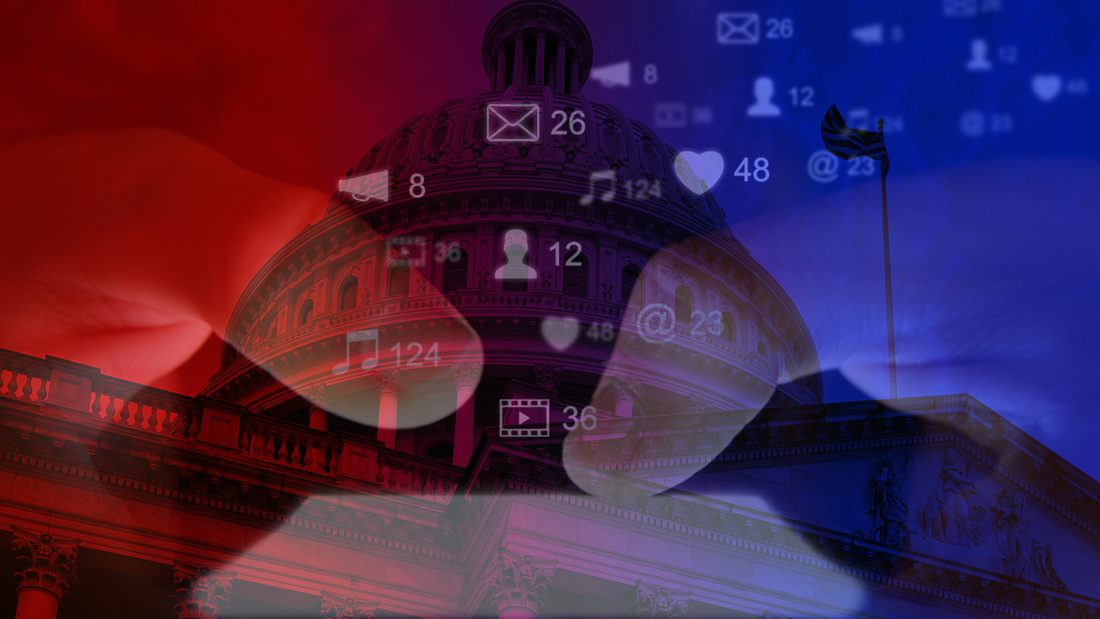
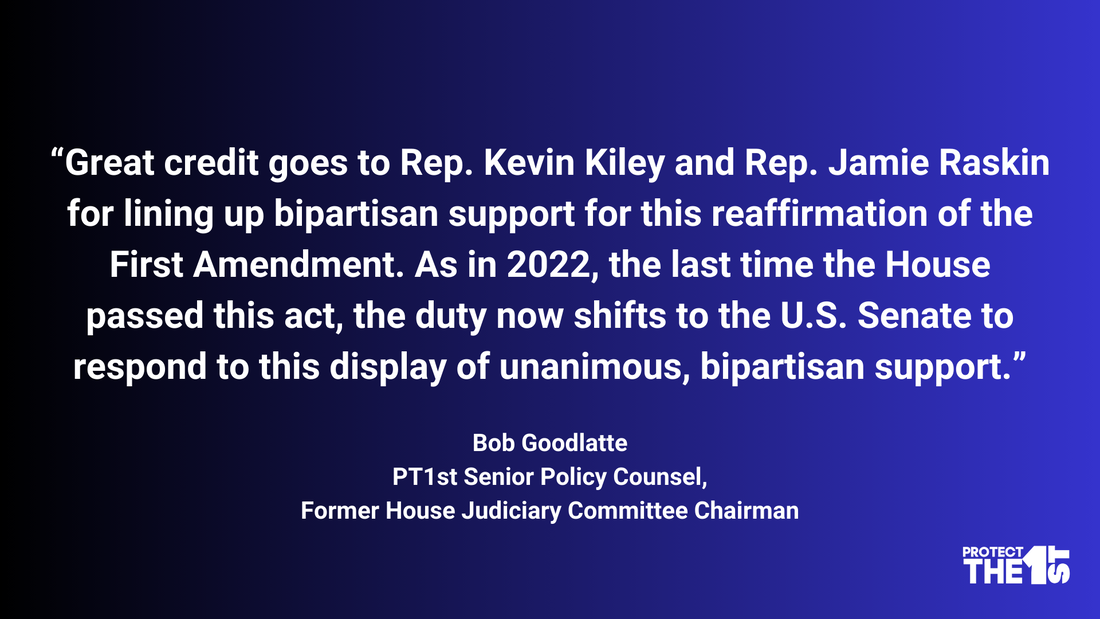

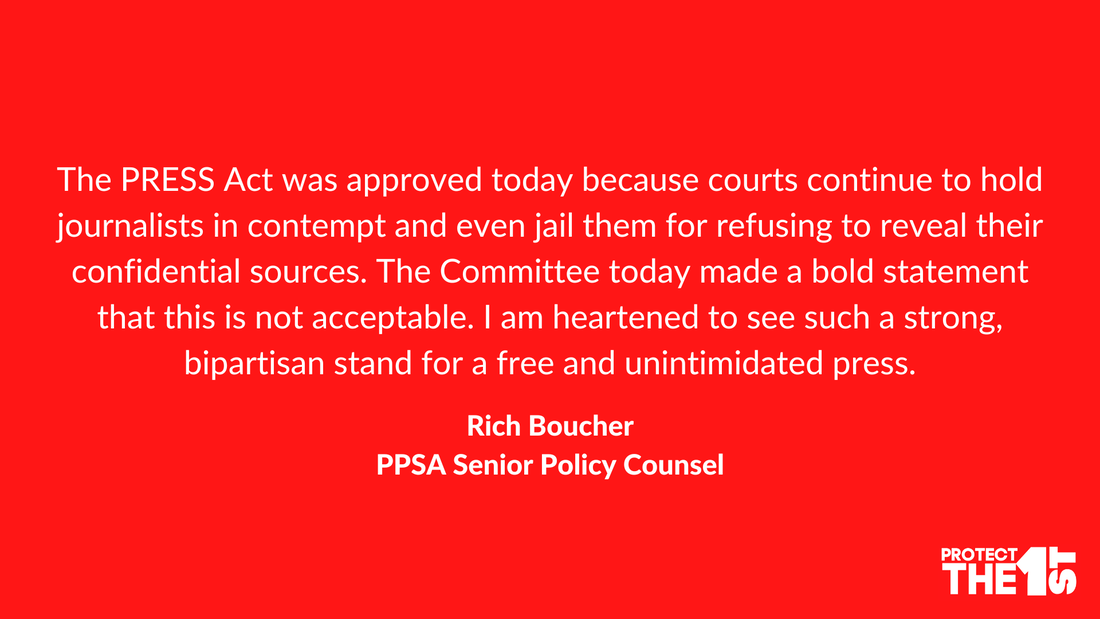


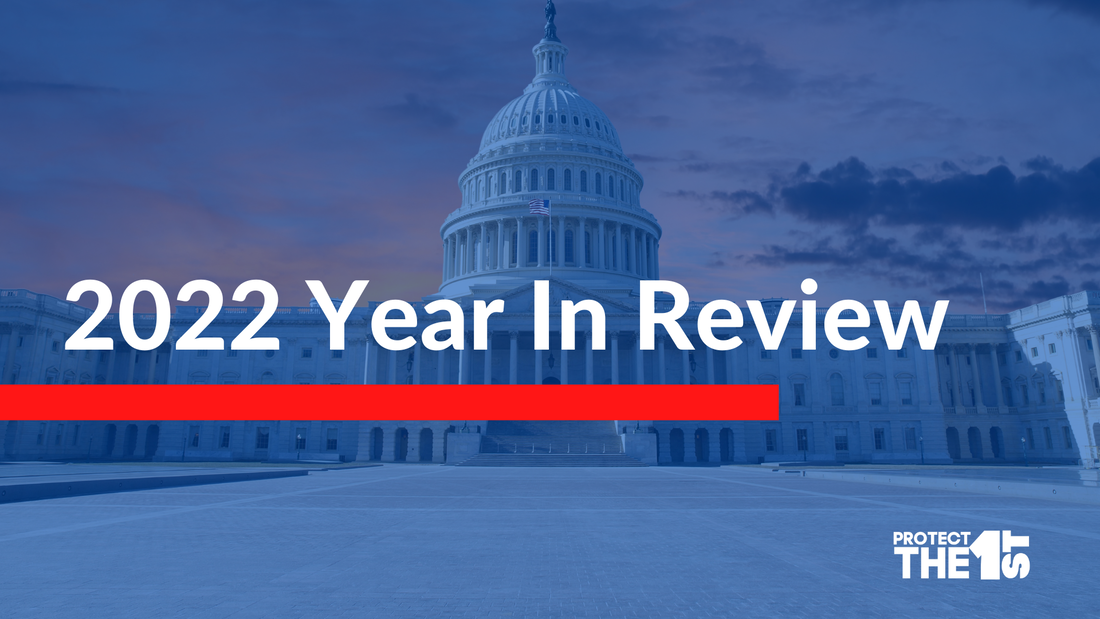
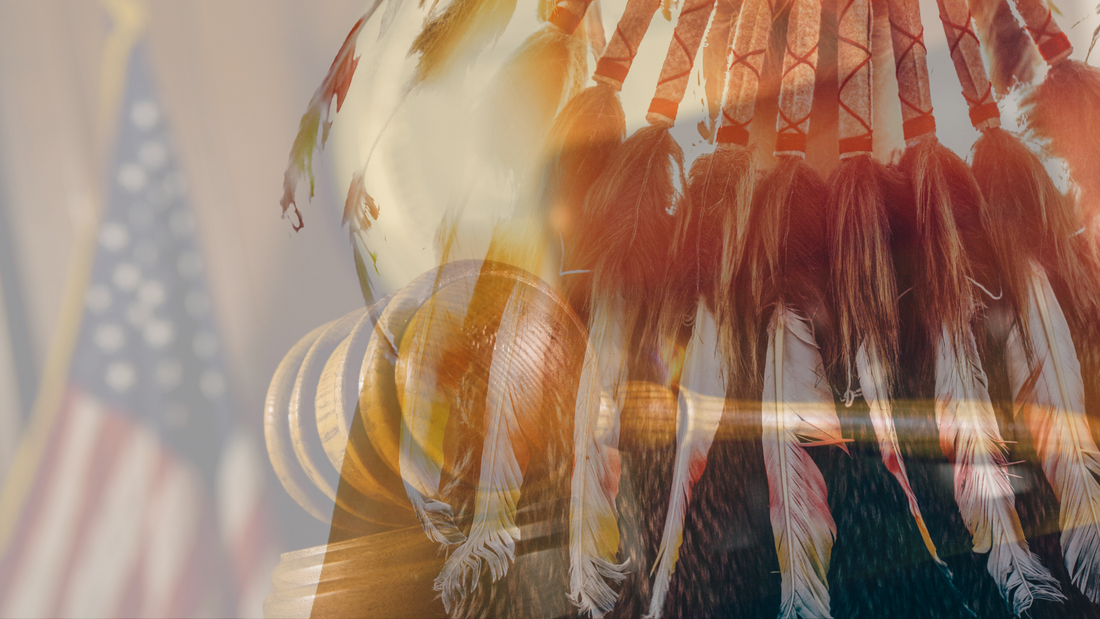
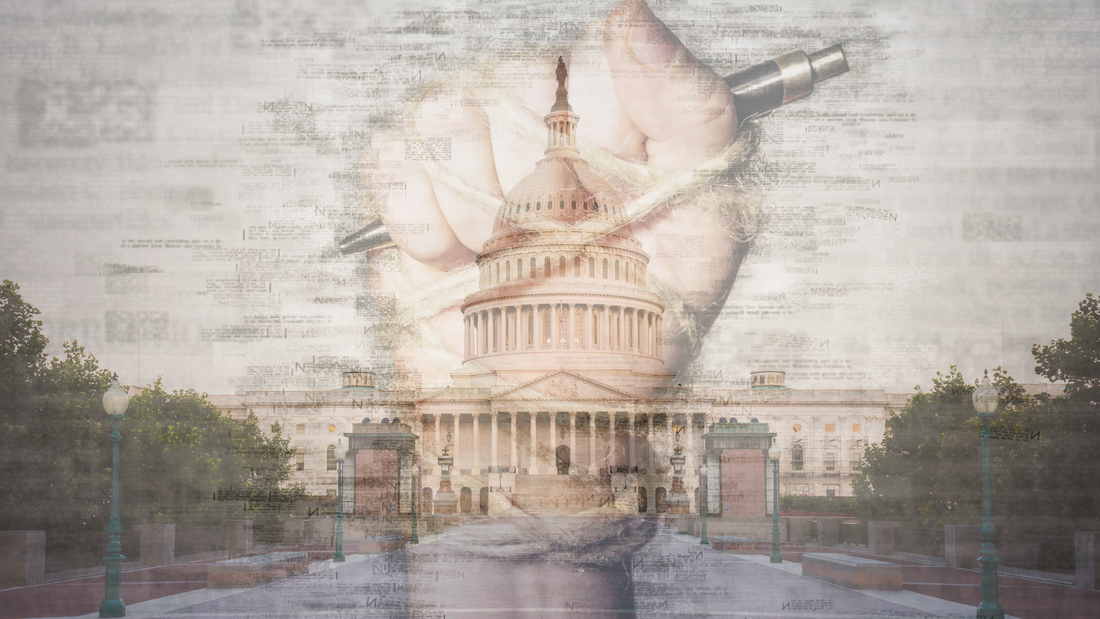

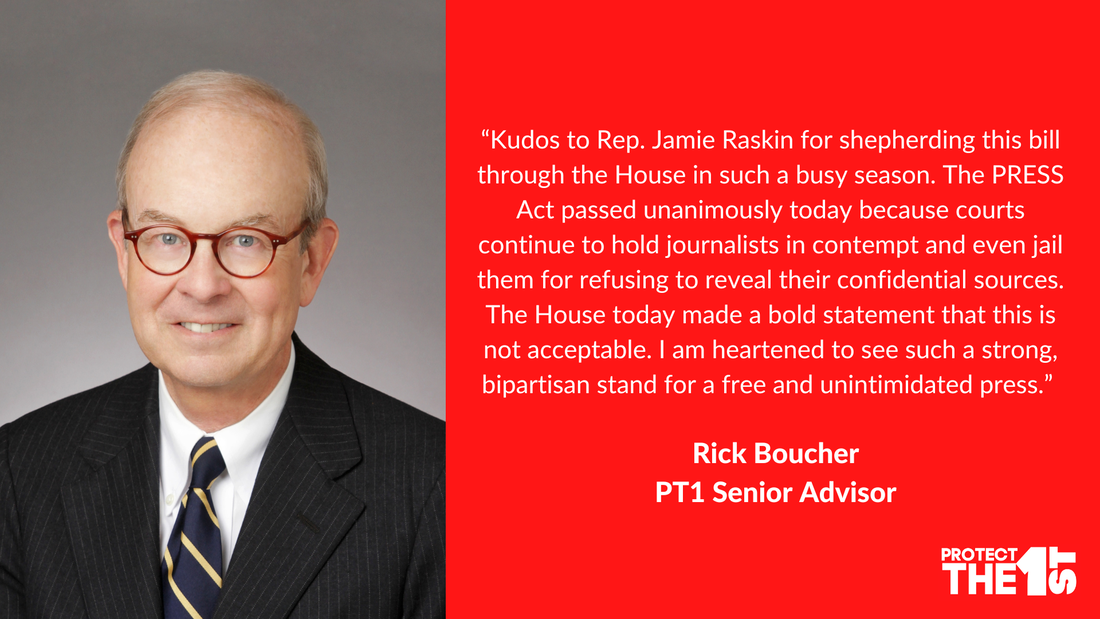
 RSS Feed
RSS Feed